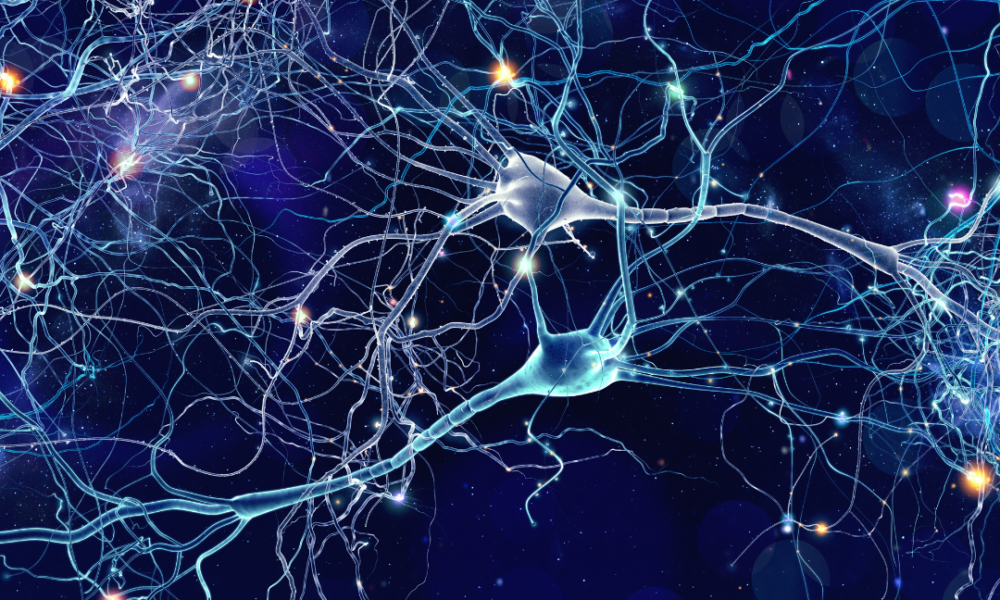In the United States, more than 5 million individuals live with Alzheimer’s, and over 15 million people act as caregivers. Wearing a purple ribbon was established to bring awareness to the disease and to demonstrate support for all those in our lives affected by Alzheimer’s.
The brain is a fascinating thing! Looking at the brain by the numbers:
- Brain signals — otherwise known as brain information — can travel up to 268 miles per hour up the spinal cord.
- The minimum number of neural connections in the brain is 100 trillion. That’s at least 1,000 times the number of stars in our galaxy.
- Your brain is like a light bulb! It generates between 12 watts and 25 watts of electricity, enough to power an LED bulb!
- You’re never using only 10 percent of your brain — you use it all, 100 percent, even when you are sleeping.
- Brain storage capacity is limitless. There are up to 1000 trillion neural connections that continually combine to increase storage capacity.
With Alzheimer’s, however, those brain cell connections are lost. The onset of the disease includes an abnormal buildup of proteins in the brain, which interrupts or stops the neural activity. The complex changes then start to occur over a long period of time in people with Alzheimer’s and lead to parts of the brain dying off and shrinking.

A whole-body approach to health
Alzheimer’s is a fatal disease that kills nerve cells and tissue in the brain, affecting an individual’s ability to remember, think and plan. Researchers are continually finding out more discoveries about how the brain works and what will make it work better.
For instance, scientists have just discovered the connection between the brain and the gut — that the brain has a direct impact on our digestive system and vice versa. Maybe, then, we can say that not only is the brain incredible, but so is the whole human body.
And our mind and body work together as a whole. What that gut-brain research demonstrates is that although researchers don’t know how to prevent Alzheimer’s, there are ways of maintaining whole-body health that show encouraging results in reducing the risks of cognitive decline.
For instance, we talk about heart-healthy lifestyles, but did you know research shows that people with cardiovascular disease and Alzheimer’s are more likely to exhibit dementia that goes along with the brain disease? Said another way, heart health has positive results on aging in the brain. Individuals with Alzheimer’s presented less cognitive decline when their hearts were in good condition compared with those who had cardiovascular disease. Be good to your heart, be good to your brain!
According to the Centers for Disease Control and Prevention, here are some upper-level ways to live a heart-healthy lifestyle:
Eat a healthy diet
Most of your diet should come from fruits, vegetables, whole grains, lean meats, and low-fat dairy products. Eat less salt, saturated fat, and added sugar.
Move more, sit less
Get at least 150 minutes of moderate-intensity aerobic activity every week, plus muscle-strengthening activities at least two days a week.
Quit smoking
It’s never too late to reap the benefits of quitting smoking.
Take medicines as directed.
Avoid or limit sugary drinks and alcohol.
Monitor your blood pressure at home.
To ensure homebound seniors are eating well and in heart-healthy ways, the Council on Aging of Central Oregon’s Meals on Wheels program delivers meals to seniors 60 and up, five days a week, 52 weeks a year!
A mindful approach to health
A second important aspect of offsetting the cognitive decline in people with Alzheimer’s is social connection. However, no one knows why social isolation is associated with a nearly 50 percent increase in cognitive decline. Research also shows that isolation is a precursor for unhealthy habits like smoking, excessive drinking, and limited or disrupted sleep. And those whole-body behaviors affect the brain.

To reduce social isolation and increase connections for seniors in our area, the Council on Aging of Central Oregon offers the Caring Connections program, which pairs isolated and homebound seniors with volunteers who call for weekly chats and/or in-person check-ins. Meals on Wheels drivers also serve as a point of personal contact and a consistent, routine presence in the lives of these seniors.


